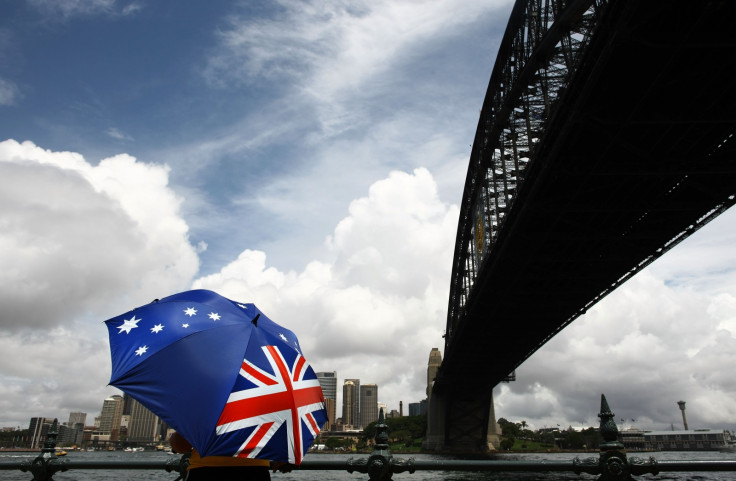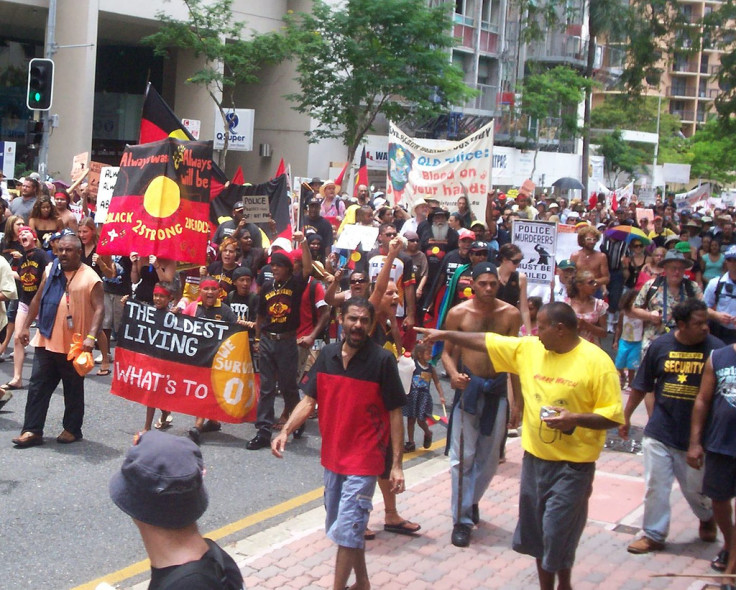Australia Day 2015: What does it celebrate and why has it sparked protests?

Australia Day is celebrated annually on 26 January, marking the the arrival of the first fleet of convict ships from Britain in 1788. The date now celebrates contemporary Australia and its vibrant society, landscape and culture. From fireworks to parties and barbecues, the date is a widely celebrated event, so why does it spark protests each year?
Documents referring to First Landing Day or Foundation Day dating back to the 19th century first recorded the tradition. Immigrants who had prospered in New South Wales – and the offspring of convicts – began to hold an annual dinner. Governor Lachlan MacQuarie, who had influence on the transformation from a penal colony to a free settlement, made the 30<sup>th anniversary of the day a public holiday in 1818.
Around a decade later, the Day of Mourning was established and held on 26 January 1938. Held on the same date as Australia Day, it was a protest held by Aboriginal Australians against the 150 years of mistreatment and seizure of land when the first ships landed. The first march was organised by two bodies. One protest was held in Victoria by the Australian Aborigines League, which was led by William Cooper. The other was organised by the Aborigines Progressive Association in New South Wales, by Jack Patten.
To this day, rallies and protests marking the Day of Mourning - dubbed by some as Invasion Day - are held on Australia Day. This year, the Australia Day Parade in Melbourne was interrupted by hundreds marching for Aboriginal rights. The group, holding Aboriginal flags, chanted "always was, always will be Aboriginal land", according to Australian news site The Age.

Day of Mourning protests have been held each year since 1938. A re-enactment of the original Day of Mourning was staged in 1998, in which around 400 protesters marched in silence along the original route and descendants of the original protesters read their speeches.
After deliberation, the Australian government issued a formal apology in February 1998, for the wrongs inflicted on Aboriginal Australians by successive governments. Kevin Rudd, the prime minister at the time, read out the apology for the laws and policies that "inflicted profound grief, suffering and loss". Although it was met with cheers when broadcasted, some Aborigines said they should have received compensation, as well as recognition of the injustice.
Noel Pearson, an Aboriginal Australian lawyer and campaigner for Aboriginal rights, stated in the Australian newspaper: "Blackfellas will get the words, the whitefellas keep the money."
Particular attention was drawn to the Stolen Generations; the young Aboriginal children who were taken from their parents by Australian Federal and State government agencies for reasons of racial assimilation.
From the late 1800s to the 1970s, church missions also removed the children, who were adopted or sent to institutions, allegedly for child protection and miscegenation. It was believed that exposing the children to "Anglo values" would prevent their languages, culture and identities from being passed on.
© Copyright IBTimes 2024. All rights reserved.







